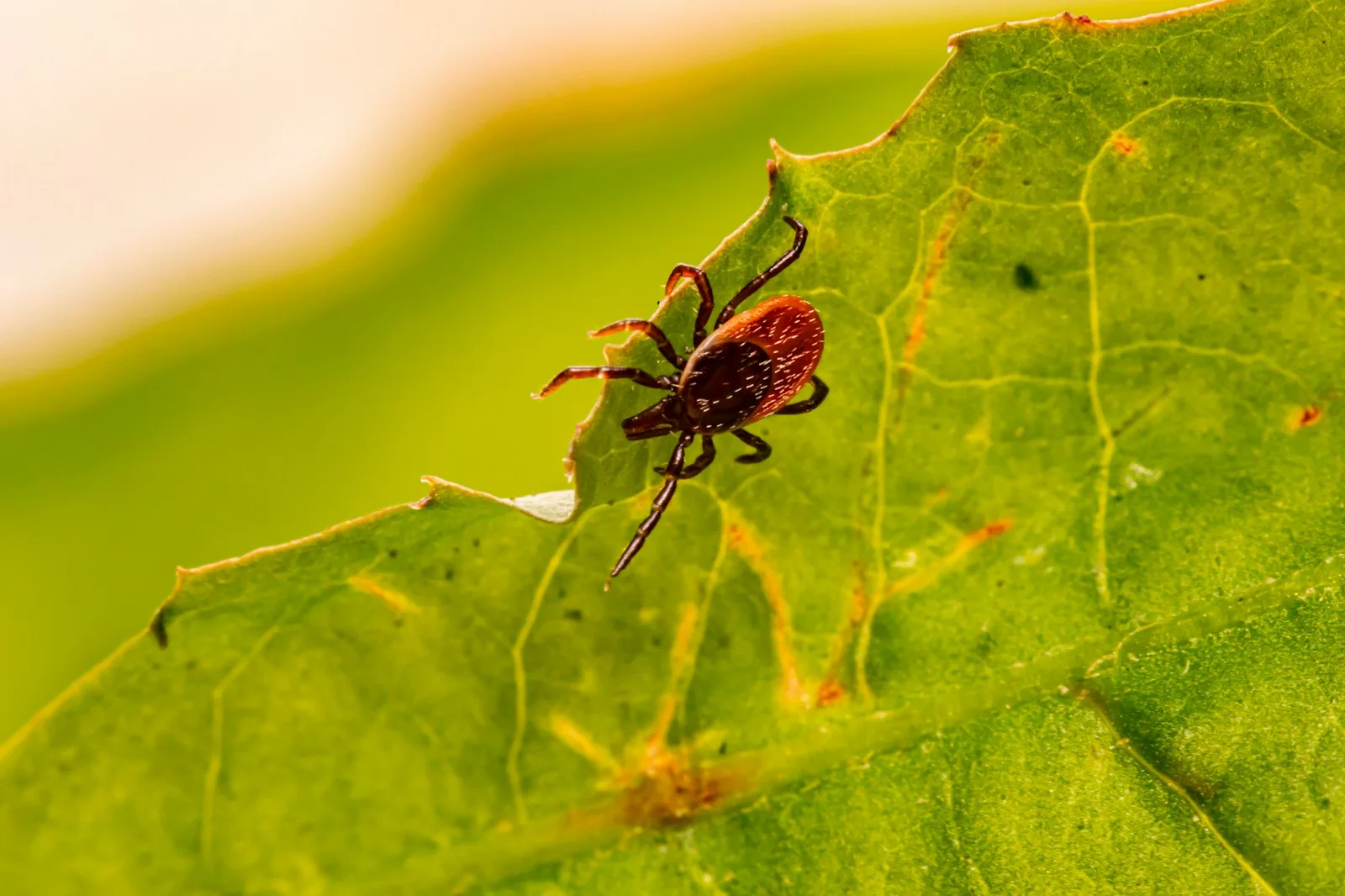
Table of Contents
Effective tick management is essential whether you have children, pets, or both at home. But the fight against ticks doesn’t end when you leave the house. Because of their extraordinary adaptability, these arachnids can find their way into your home by traveling with your pets or perhaps even attaching themselves to you. Therefore, tick prevention is essential both indoors and outdoors. But don’t worry—there’s a safe, natural alternative that doesn’t require the use of harsh chemicals. We’re referring to diatomaceous earth (DE), a very successful way to get rid of ticks on your lawn.
Ticks are small, sneaky arachnids that may seem harmless at first, but they can seriously harm your health and your property. Because they stick to their hosts to feed on blood, these tiny parasites can be a nuisance to you and your pets. However, the infections they spread are more of a concern than the trouble they cause. Lyme disease is one of the most common diseases known to be transmitted.
If Lyme disease is left untreated, it can lead to serious health problems. The International Journal of Environmental Research and Public Health also states that ticks can transmit other dangerous diseases to humans and pets, such as ehrlichiosis, anaplasmosis, babesiosis, and Rocky Mountain spotted fever. However, DE can show The answer to your tick management problem gives you a long-term, non-toxic method of killing these bloodsuckers.
Read more: 25 Flower Bed Ideas That Will Bring Your Outdoor Space To Life
Using Diatomaceous Earth For Lawn De Ticking

Make sure you have safety equipment (garden gloves, goggles, dust mask or facemask), food-grade or natural diatomaceous earth, and other necessary supplies before starting your tick-elimination adventure. Simply apply a small, even coating of diatomaceous earth to areas such as tall grass, shrubs, and the perimeter of your property where ticks are most likely to successfully eradicate ticks from your lawn or yard. After significant heavy rain or drizzle, reapply as moisture may reduce its effectiveness.
What is diatomaceous earth, then, and how does it get rid of ticks? DE is a naturally occurring material formed from the fossilized remnants of aquatic creatures known as diatoms, which have silica shells. Under a microscope, the finely ground powdered substance appears as little particles with sharp edges. DE works as a desiccant, or it dries out ticks, when it is sprayed on your lawn or in locations where ticks are an issue. It is also effective against other pests, including mealybugs, aphids, and ants.
The tiny particles stick to the ticks’ bodies as they move through the DE. The ticks’ exoskeletons, or outer shells, are harmed by these tiny, pointed particles, which causes them to lose moisture. The ticks are finally killed and dehydrated by this procedure. It’s important to note that DE is harmless to humans and pets.
Achieve Optimum Results With A Multifaceted Approach

Although diatomaceous earth is a great tool for controlling ticks, it works best when used with other preventative measures. Maintaining a tidy lawn will yield the greatest results. Mow the lawn frequently and trim bushes in places where ticks hide. For additional protection against tick-carrying animals, consider erecting a physical barrier around your home, such as a fence. Another option is to use clever landscaping techniques by including plants in your garden that repel ticks, such as rosemary and lavender.
Additionally, develop a habit of checking yourself, your family, and your pets for ticks after spending time outdoors. Removing ticks as soon as possible can prevent bites and diseases caused by ticks. Also, treat your dogs with tick-repelling solutions and make sure they are free of ticks before bringing them inside. Remember that each state has a different tick and flea season; For example, the West Coast states of California, Oregon, and Washington have year-round tick problems. So, use a chart like this one from the American Kennel Club to determine when to fertilize your lawn with DE and when to take additional tick-prevention measures.
READ | Stink bugs : Entomologist 6 advice on getting rid of stink bugs


1 thought on “Banish Ticks for Good: Harness the Power of Nature to Clean Up Your Lawn!”